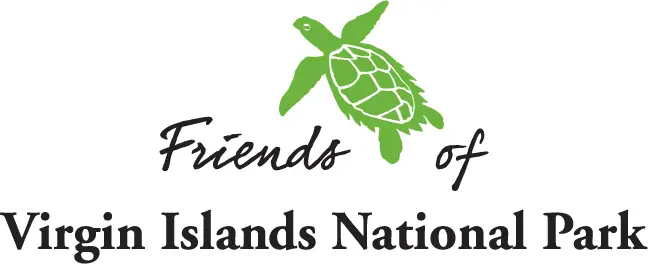USVI Hawksbills Take Spotlight at International Symposium
By Nyomi Gumbs | Virgin Islands Source |
The Virgin Islands garnered major attention at the recent 42nd annual International Sea Turtle Symposium, March 24-19, in Pattaya, Thailand. The Hawksbill Project, founded by Scott Eanes, was spotlighted for its substantial progress in filling critical data gaps regarding hawksbill turtles in St. John last year.
Notably, Eanes was also honored with the prestigious Champions Award, the highest recognition presented to an individual by the symposium for carrying out outstanding work toward the research and conservation of sea turtles.
“Winning the award is an incredible achievement that validates the work WE have been doing,” said Eanes. “It is an individual award, but this really took a team. Jeremy Baird, THP’s director of development, Dr. Alex Webb, THP’s director of advocacy, Dr. Paul Jobsis, THP’s director of research, plus the entire project from Grenada, Ocean Spirits (Kate Charles and her team), UVI Sea Turtle Research, Dan Mele from UVI Epscor, Erin Lieb, Victoria Beasley from Department of Natural Resources, Stephen Connett, and so many more people were all extremely instrumental.”
Known as a keystone species, hawksbill sea turtles play a crucial role in marine ecosystems, helping to maintain the health of coral reefs and contributing to nutrient cycling and beach ecosystem health through their nesting activities. Despite their ecological importance, hawksbill sea turtles face numerous threats, including habitat loss, pollution, climate change, and poaching for their beautiful shells.
“Nearly 99 percent of hawksbill turtles are extinct and so the turtles that we see remaining represent that one percent. The Hawksbill Project was able to identify on St. John the number of hawksbill turtles that exist around the island so that organizations like the Department of Natural Resources or Friends of the Virgin Islands Natural Park can continue to monitor and protect the remaining population,” said Eanes.
During the symposium, Jobsis highlighted the crucial research conducted in St. John last year that yielded fascinating results. Prior to this work, St. John would have been categorized as data deficient, indicating a lack of data on the island’s hawksbill turtle population. However, following the assessment, which involved the participation of various stakeholders including island residents, the National Park Service, and Friends of Virgin Islands National Park, among others, valuable data now exists regarding the presence or absence of hawksbill turtles on the island.
“The results of the assessment were actually very interesting. We documented over 20 hawksbills and we sampled (meaning hands on) 18 turtles, of which seven were from the northside of the island and 11 from the southside,” noted Eanes.
“The most important thing is there is now some data. Some information. Some genetic samples. If we sample them again this year, we can start to get some very good biometric data, growth rates, etc. It is all part of a larger process. Every year builds on the last and the results help us address the research questions we would like to answer the following year,” he added.
The recently published 2023 Friends of Virgin Islands National Park season report brings positive news regarding Hawksbill (Ei) nests for the 2023-2024 season. The report reveals an average hatch success rate of 69.3 percent and an emergence success rate of 67.3 percent across all sites. Hatch success represents the percentage of eggs that hatch, while emergence success indicates the percentage of hatchlings that successfully leave the nest cavity.
The highest singular emergence success rate of the season was an impressive 96.8 percent. During the 2023-2024 season 2,491 hatchlings, representing both the hawksbill and green turtle species, successfully reached the sea.
Amidst a sea of positive developments in turtle conservation, Eanes’ captivating story, “Hawksbill Cove: From Ecological Catastrophe to Conservation Classroom,” also received the honor of being featured in the State of the World’s Sea Turtles Volume 19 publication, released on March 24. Eanes’ article reveals how a devastating accident triggered a series of events that inadvertently led to what has once again become a robust habitat for the hawksbill sea turtle. The article delves into the fascinating behaviors of hawksbill turtles, showcasing their resilience and intelligence, even amidst two Category 5 hurricanes.
“The Hawksbill Project was created to address data deficiencies as it relates to hawksbill turtles. We want to continue to work with like-minded projects that have a desire to collect this data, but for a variety of reasons may not have the funding, experience, or expertise to get it done,” said Eanes. “The award and recognition we have received this year is proof that The Hawksbill Project is fulfilling its mission.”
